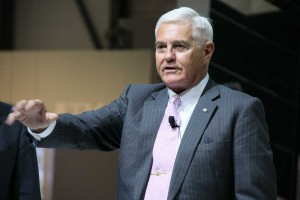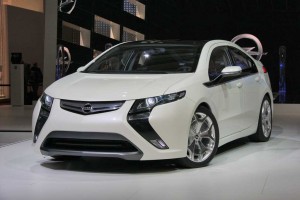
Bob Lutz: 77 is old enough.
“The industry may need five years to recover,” says General Motors Vice Chairman Bob Lutz, giving his first hint as to why he suddenly decided to retire, last month, after a nearly half-century in the auto industry. “I did the math,” says the 77-year-old executive, “and decided 82 was a little old to be dealing with these problems.
Lutz’s upcoming departure – he leaves his post as “car czar” the end of this month, though the septuagenarian continues in a consultant’s role through the rest of the year – leaves a number of questions about GM’s future. He has been the company’s most active and visible proponent for the development of world-class product. Whether his successor, powertrain chief Tom Stephens, can and will remain such a vociferous auto activist remains to be seen.
Lutz put in a brief appearance, this week, at the Geneva Motor Show, which he recalled was the first show he attended as a car-crazy youngster. While he used this trip to check out the competition’s offerings, the silver-haired former Marine pilot also watched the unveiling of the Opel Ampera, the latest spinoff of the Chevrolet Volt.

Opel Ampera, Volt's kissing cousin.
That latter “extended-range electric vehicle” was conceived by Lutz as a practical blend of conventional hybrids and battery electric vehicles. Like Volt, Ampera promises to deliver about 40 miles range solely using its Lithium-Ion battery pack. For longer drives, a gasoline engine would automatically kick in to drive a generator to charge the batteries.
GM has billed the Volt and spinoff products, including Ampera and the Cadillac Converj as a significant step towards a cleaner automotive future – and as a way to rebuild the company’s own crumbling fortunes. But whether the underlying “Voltec” technology really will live up to its promise has become a matter of much debate.
Toyota, for example, has repeatedly downplayed LIon battery technology, U.S. Vice President Bob Carter telling TheDetroitBureau.com, last week, that the Japanese maker prefers to focus on well-tested and reliable Nickel-Metal Hydride batteries, such as those used in its new, third-generation Prius.
Toyota actually is working with lithium technology, and it expects to launch a plug-in version of Prius early in the next decade, though Carter stressed it will work with fleet buyers, initially, before deciding whether to market the more limited-range Prius plug-in to general consumers.
